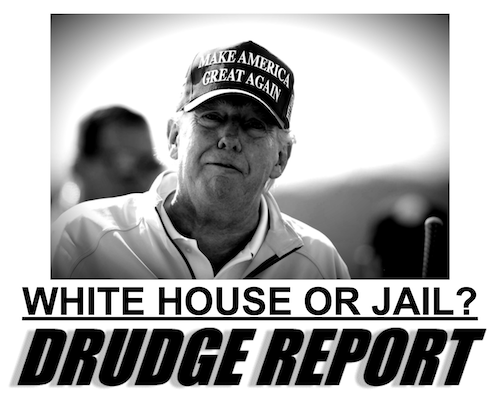Conservative media has flourished in the belief that the audience is always right, especially when the audience is obviously wrong.
That conviction has made a lot of people in the industry rich. As well as a few outside of it.
But the same is true of all partisan media, if perhaps not as true as it is of the crass propaganda preferred by the Republican base. If you cater to a left-wing clientele, you know that your audience’s desire for the end of Donald Trump’s political career is ravenous and insatiable. Which gives you, the ambitious broadcaster, a strong incentive to feed it.
Even if what you’re feeding it is garbage.
No mainstream liberal pundit is better known for feeding her audience tasty Trump-related refuse than MSNBC’s Rachel Maddow, who spent the first half of his presidency speculating darkly and sensationally about what the Mueller investigation might reveal about his ties to Russia. With which I sympathize to a point: Trump is capable of anything, so even outlandish scenarios of corruption can’t be dismissed out of hand.
I also sympathize with Trump skeptics’ difficulty coping with the tawdry absurdity of our era.

Last week’s news foisted upon us a new round of laugh-or-cry questions about the future of American government. If an ex-president goes to prison, does his Secret Service detail get locked up with him? If he wins the presidency again, can he free himself with a pardon? If he can’t, do we build a cell inside the White House so that he can carry out his duties while serving his time?
Such are the dilemmas that the citizens of The Greatest Country In The World, in their wisdom, seem poised to embrace. One can understand how Rachel Maddow or an avid Rachel Maddow viewer, despairing at the corrupt inanity of it all, might indulge in fanciful theories about how the ordeal could be averted.
But ideally they wouldn’t be so fanciful as to be corrupt in their own right.
This dopey, pernicious idea has been circulating in “Resistance” quarters for months. Now that federal charges against Trump are real rather than hypothetical, they should drop it.
The idea of the Justice Department showing leniency to a defendant in exchange for some political outcome derives from Spiro Agnew’s resignation. In 1973, under suspicion of taking bribes, Agnew made a deal to plead guilty to federal tax evasion that spared him prison time and stepped down as vice president.
Which also seems corrupt, if in fact his decision to resign influenced how the DOJ charged him. The administration of criminal law should concern itself with justice, never with political ends; to make one exception is to invite endless future exceptions. Any other rule would allow public servants to negotiate lighter sentences for themselves than the average Joe could hope to secure by using their office as leverage in plea deals. By what right should a politician, having been trusted with public power, be allowed to bargain that away for indulgence of his personal crimes?
A deal between Trump and the DOJ of the sort Maddow imagines would be more corrupt than the Agnew deal was.
The charges against him are more serious. He faces hundreds of years in prison, theoretically, for having grossly abused his presidential access to state secrets. If we’re willing to let him off on that in return for him quitting politics, what sort of crime would be too severe to justify leniency? Murder? Terrorism? Is there one?
It’s the “Fifth Avenue” standard, except this time he could shoot someone on Fifth Avenue and not face prosecution as long as he stays out of politics.
Trump also doesn’t currently hold office, as Agnew did when he made his deal with the feds. One could argue that it was proper for the DOJ to secure Agnew’s resignation so that he couldn’t continue to exploit his office financially and because the public had no electoral outlet to punish him for betraying its trust. (To which I’d reply: That’s what impeachment and removal are for.) But in Trump’s case, the public can and will have its say about his conduct—unless a Maddow-style plea deal short-circuits the process by squeezing him out of the race, denying the electorate its right to decide whether he’s fit for office or not.
Which, again, would be a bad precedent.
Trump has one more thing going for him that Agnew didn’t, supporters willing to side with him against the justice system irrespective of facts, reason, and morality. “The GOP establishment quickly distanced itself from Agnew,” the Washington Post recalled in April about the former VP’s scandal. “The investigation had the full support of [Republican] Attorney General Elliot Richardson. Its lead investigator, U.S. Attorney George Beall, was from a well-known Republican family and his brother, Glenn Beall Jr., served in the U.S. Senate.” Agnew’s plea bargain wasn’t seen as “politicized” because influential members of both parties were willing to hold him accountable.
That was 1973. Fifty years later, the Republican Party isn’t sending its best.
In 2023 it’s become right-wing dogma that any adversity Trump experiences is part of an illicit left-wing political plot to destroy him, no matter how culpable his behavior might seem. It’s the fruit of his lifelong effort to reframe any and all personal failings as products of someone else’s unfairness. Under those circumstances, Republicans wouldn’t treat a Maddow-style plea bargain to force him from the race as legitimate even if the Justice Department were led by MAGA Republicans.
But when it’s led by people who answer to a Democratic president at a moment when Trump is a heavy favorite to challenge that president in the next election, even a damning indictment is destined to be seen as “politicized.” If Spiro Agnew had already served a term as president and was sitting on a 40-point lead in 1976 primary polling before a Democratic-run DOJ brought down the hammer, his plea deal wouldn’t have smelled great either.
Pity Lawrence O’Donnell, who had to gently explain to Maddow in the clip above that the sort of deal she’s describing would perfectly validate the right’s suspicions about the nature of this prosecution. It’s not about holding Trump accountable for crimes he committed, it’s about ending him as a political threat. No wonder Donald Trump Jr. was eager to call attention to the clip on Twitter after he saw it. “Are you paying attention yet?” he tweeted about the Maddow-O’Donnell exchange. “They're saying the quiet part loud.”
What makes this all the more absurd is the idea that Trump would ever consider quitting the race in exchange for charges against him being dropped. It defies everything we know about the man. Quitting would detonate his carefully cultivated image as the supreme “fighter” on the American right; it would clear the way for someone to supplant him as GOP monarch, rendering him a has-been; it would spoil his defense to the charges he’s facing in New York and (soon) Georgia, that he’s being prosecuted only because Democrats fear his return to office; and it would contradict his palpable, well-founded belief that he can talk, bribe, or bully his way out of accountability in any situation.
When he was asked this past weekend whether he’d ever agree to a plea deal, he said maybe—if the government agreed to pay him damages. That’s our Donald.
Maddow’s plea deal is a cringy fantasy, ironically bolstering Trump’s own narrative about why the charges against him have been brought. She and other “Resistance” types are doing special counsel Jack Smith no favors by promoting the idea.
The indictment suggests that Smith bent over backward not to make this political, in fact.
Trump critics got excited last summer when the FBI’s warrant to search Mar-a-Lago was published. Tucked away in the fine print amid the list of items taken was a list of statutes which the feds believed Trump might have violated—specifically, Sections 793, 2071, or 1519 of Title 18.
Section 2071 is an interesting one.
It provides in part that anyone with custody of a record filed with a public officer who “willfully and unlawfully conceals [or] removes” such record faces prison time and “shall forfeit his office and be disqualified from holding any office under the United States.” Scholarly analysis at the time suggested that only appointed officials who violate the statute can be disqualified; candidates for president would be protected by Supreme Court precedent finding that the Constitution alone prescribes the qualifications for elected office. But anti-Trumpers were abuzz at the possibility of a criminal conviction forcing Trump into retirement.
You can imagine how aggressively that subject would be litigated in public if it were part of Smith’s case. Rachel Maddow would devote 40-minute monologues to the meaning of Section 2071 on every show. The Trump prosecution would be instantly and intractably sidetracked by questions of whether he might be struck from the ballot if he’s found guilty.
So Smith didn’t charge Trump under it.
No fewer than eight different statutes or sections of statutes are referenced in the indictment but Section 2071 isn’t among them, despite the fact that Trump’s behavior at first blush appears to have violated it. My guess is that Smith thought a charge carrying disqualification from office was more political trouble than it’s worth given that he had dozens of other crimes to accuse Trump of. So he dropped it, his way of signaling that this prosecution is about the law, not about engineering some Democratic-preferred electoral outcome.
And suddenly here comes Rachel Maddow to wonder why he doesn’t make Section 2071 happen through the back door, via a plea deal. Sigh.
It’s a tidy illustration of how some Trump opponents, driven to distraction by his talent for evading accountability, are willing to bend norms themselves to try to corner him. You’ll find another example today at Slate calling for Judge Aileen Cannon to recuse herself from Trump’s trial because her “impartiality might reasonably be questioned.” Cannon has no personal or financial conflict of interest in this matter, to be clear; the grounds for questioning her impartiality, according to the authors, are simply that she’s a Trump appointee who issued a hacky ruling on Trump’s behalf in the documents saga several months ago and got obliterated by an appellate court because of it.
Is that the standard America wants? If judges who clearly and reliably sympathize with one party can’t properly adjudicate politically sensitive matters, I fear the entire Supreme Court will need to recuse itself from … everything. Which, come to think of it, has also provoked some norm-bending suggestions from the left.
We’ll see many more dubious proposals from Trump antagonists in the months ahead about how to counterprogram his own dubious strategies for wriggling out of this jam. I don’t condone any of them.
But I do understand them. The clearer it becomes that Republicans are willing to indulge any degree of malfeasance from Trump, up to and including brazen federal crimes, the more desperate his antagonists will be in grasping for some deus ex machina that’ll finish him off and keep him from returning to power.
January 6 was supposed to be that, the moment that the party finally turned against him. It wasn’t. Then Senate Republicans had a chance to convict him after he was impeached and disqualify him from future office. They passed, believing he’d be politically unviable by 2024. Then came the midterms, when DeSantis’ landslide win looked like the passing of the torch within the party vis-a-vis the dismal defeats of Trump-backed candidates. Nope again.
He’s now been indicted twice. Everyone to the left of Jim Jordan who’s read the federal indictment finds it devastating. Yet early Republican reaction in polling is just what you’d expect.
“If Trump is the GOP nominee next year, he essentially could be campaigning for his freedom,” Axios marveled on Saturday, although I don’t know why they were conditional about it. He’s going to campaign that way in the primary too, turning the race into a referendum on whether the “deep state” should be allowed to jail him or whether he should be returned to office so that he can fire them all. The odds that he’ll win going away with that message far exceed the odds of a DeSantis comeback.
What is to be done with a party like this?
How much can one blame Maddow for stupidly fantasizing about a corrupt plea bargain that would, at least, end our Trump nightmare knowing that the American right has concluded that nothing he does or could possibly do should disqualify him from the presidency?
Last week The Messenger reported that when Republican voters were shown an ad from Liz Cheney criticizing Trump for inciting the mob on January 6, his support rose.
Jailing Trump won’t solve the problem here. It would be gratifying and cathartic for his critics, but the political crisis of how to run a liberal democracy when one of the two major parties no longer believes in holding its least liberal leaders accountable in any way will abide. The federal indictment matters if and only if it causes Republicans to regain a modicum of their moral bearings and conclude that Trump, having behaved inexcusably with classified information, can’t be trusted to handle it again. There’s no reason to think they will.
And if I were Jack Smith or Merrick Garland, I’d resent it terribly that anyone expects me to solve a “Trump problem” that Republicans created, have had seven years to solve, and have refused to address at every turn. A rotten people will not be saved by a few well-placed virtuous actors. Eventually, one way or another, they’ll work their will.







Please note that we at The Dispatch hold ourselves, our work, and our commenters to a higher standard than other places on the internet. We welcome comments that foster genuine debate or discussion—including comments critical of us or our work—but responses that include ad hominem attacks on fellow Dispatch members or are intended to stoke fear and anger may be moderated.
With your membership, you only have the ability to comment on The Morning Dispatch articles. Consider upgrading to join the conversation everywhere.